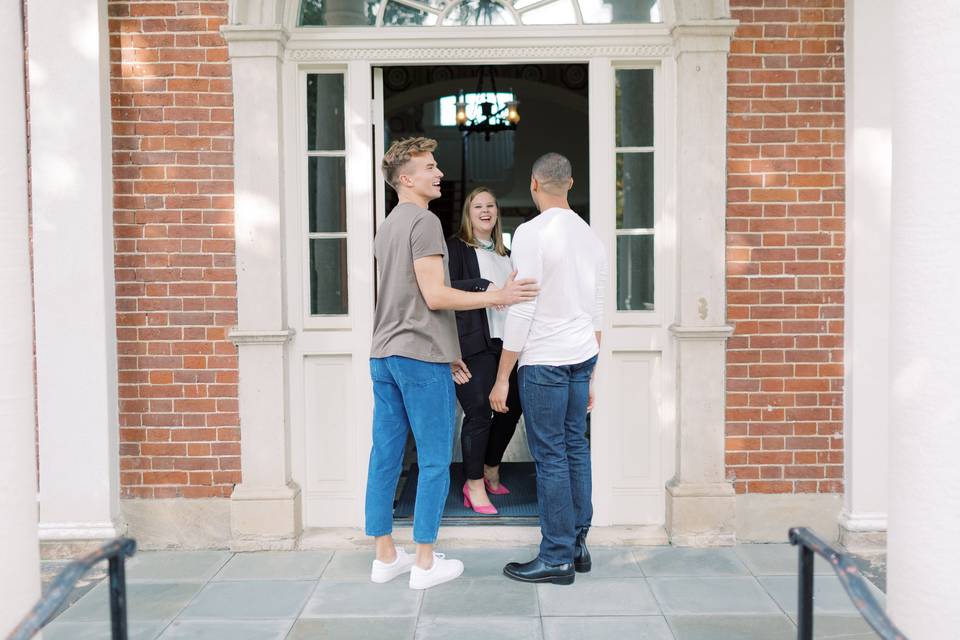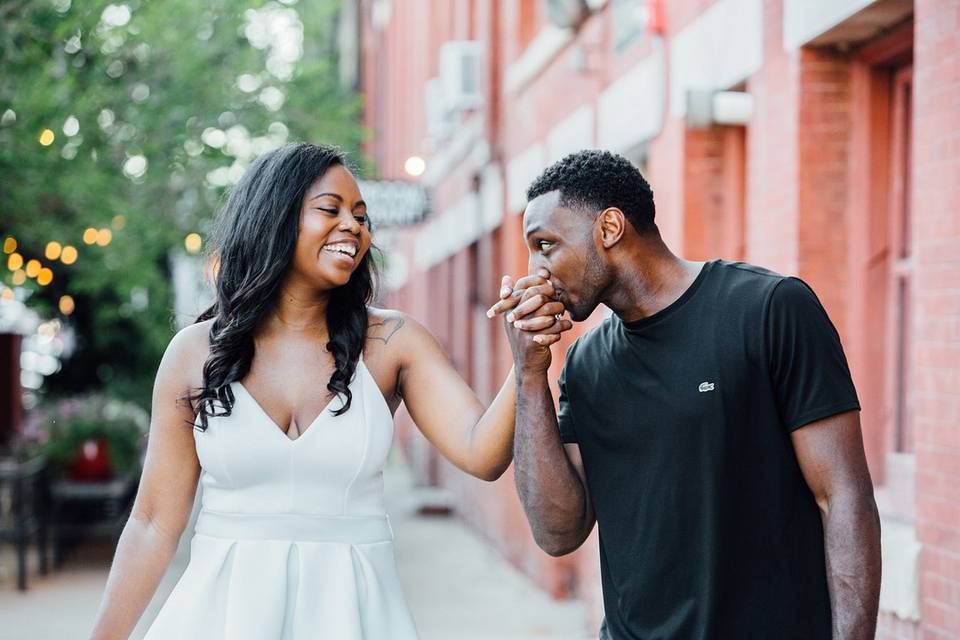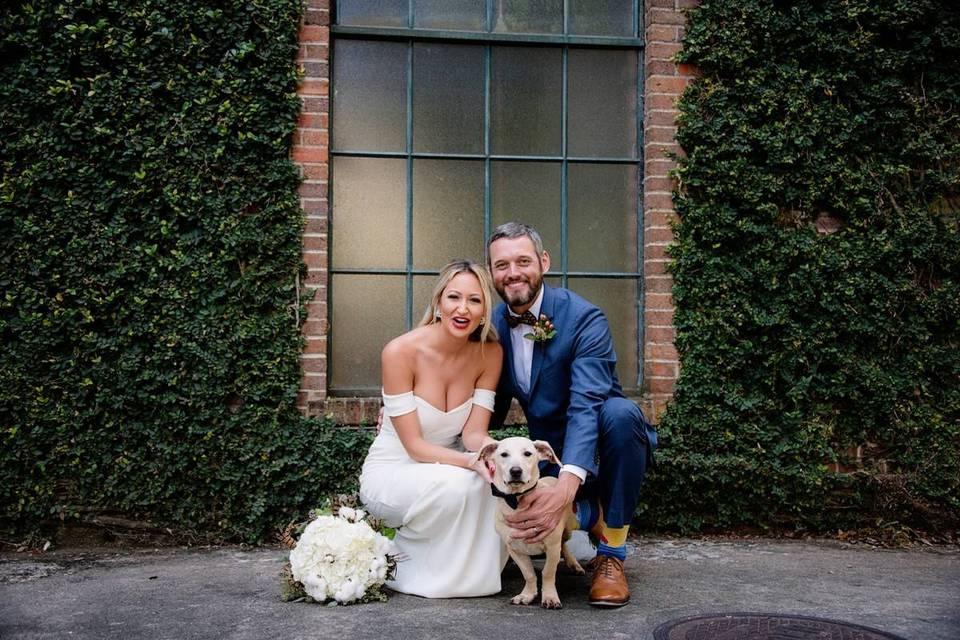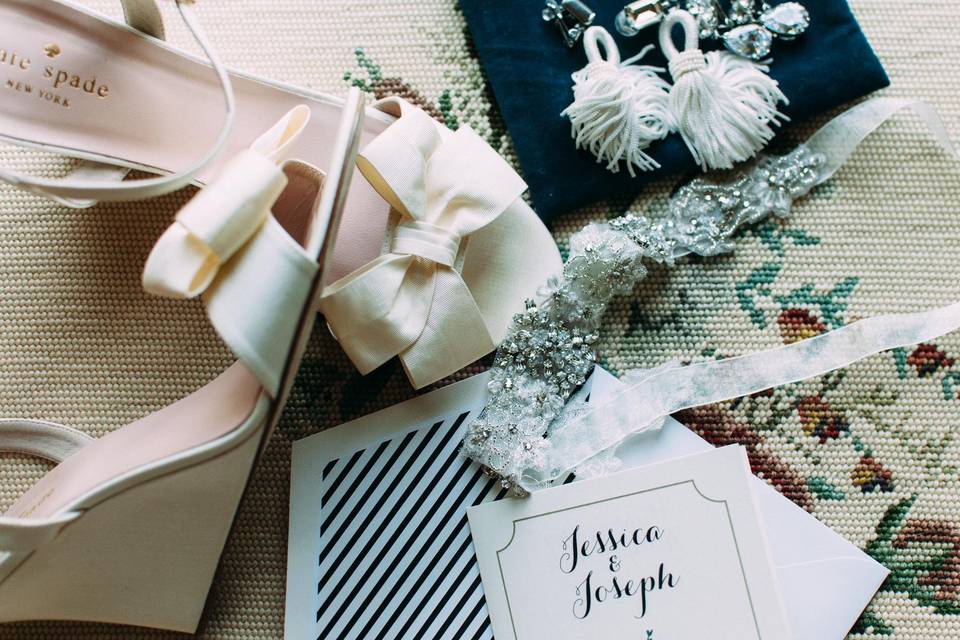What to Do About Your Wedding During the Coronavirus Pandemic
It’s okay to feel overwhelmed right now. We’re here to help you decide what’s best for your wedding day amid the coronavirus pandemic.
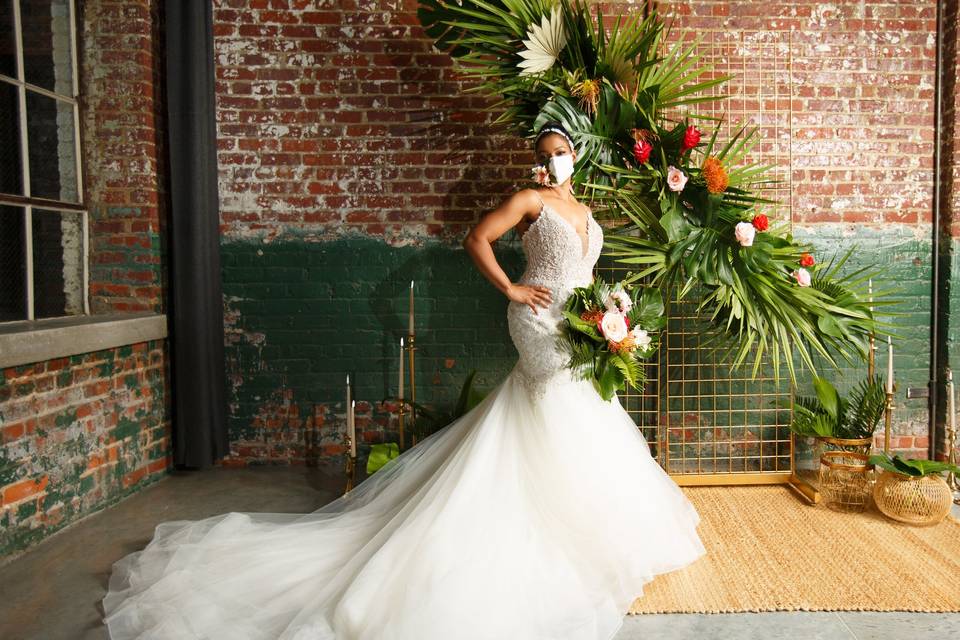
It’s safe to say most of the world is on edge right now, as countries, governments and communities react and prepare for the ongoing impact of a pandemic. COVID-19 is spreading rapidly, and causing a major strain on the wedding industry, as venues scramble to react to the news and create preventive measures for upcoming events. Engaged couples, too, must respond quickly to the news and make difficult decisions regarding their upcoming nuptials. While those with dates in the near future are most significantly impacted, even weddings later in the year may experience delays or other unexpected shifts. First things first: Breathe. Take a moment. And remember you’re not alone in this uncharted territory. Here, we spoke with wedding planners on how couples can navigate and adjust to this new normal.
I’m feeling overwhelmed. Where should I begin?
Amy Shey Jacobs of Chandelier Events in New York describes the current state of affairs best: every hour the conversation is changing, and the industry is working around-the-clock to consult with clients and vendor partners. At first, Jacobs was focused on making small tweaks with social distancing—including no-hug receptions, elegant ways to have hand sanitizers available, switching buffets to individual surfaces, and reducing head counts. But, as the days and hours have gone by, growing quarantines, travel bans and federal and state rules about legal venue capacities have forced couples to think about bigger changes.
If you have a wedding happening within the next few months, get in touch with your vendors as soon as possible. How come? Nor Sheils of Bridal Bliss in Seattle, says it gives you time to explore all of your options, understand the new regulations impacting your zip code and create an overall, holistic view of how your big day may be impacted. Though it is a high-stress time, Sheils says try not to panic. “No one knows what the future will hold. Now is the time to review your vendor contracts and insurance policy, and create a loose backup plan,” she continues. “Communicate with your wedding professionals, educate yourself on rescheduling clauses and explore all options.
As you go through your documents, create a check-list as a team that addresses these areas:
- Your wedding date. No events of more than 10 people can take place until mid- to late May, according to the government—if your event falls in this timeframe, you'll need to adjust your plans.
- Your wedding venue. If your venue is closed due to the current crisis, do they have plans to reopen? Again, this situation is constantly changing so your venue may need to adjust accordingly.
- Your guests and their health and comfort. Having a wedding where everyone is on edge will not create that once-in-a-lifetime experience you have dreamt of. Especially if you have many older guests, who are at the highest risk for COVID-19, they may not be able to attend in the near future.
- Your insurance policy. If you’ve purchased wedding insurance, read your provider’s policy information to understand your rights and what it covers and what it does not.
What should I do if I decide to reschedule?
Generally speaking, it’s important for you and your partner to be aligned on the decision to cancel or reschedule your wedding. You'll need to review state and local guidelines to determine whether or not your wedding can occur,
Once you make the choice to reschedule though, Jacobs says to move quickly. Since many couples will be in your same shoes, dates in the future will start to become booked solid—and fast. “Couples and their planners need to get on the phone with their venue and vendors quickly so that they can lock in a new date,” she recommends.
And since you are going back to the drawing board, Jacobs recommends creating a contingency plan with vendors and venues that have a 30-day (or longer) trigger date to cancel the wedding and move back up the date, should things clear up. “Having this spelled out in writing as early as possible is the key to making the moves when you need to,” she explains. “If the wedding is within the next six months, we would recommend having the contingency in place.”
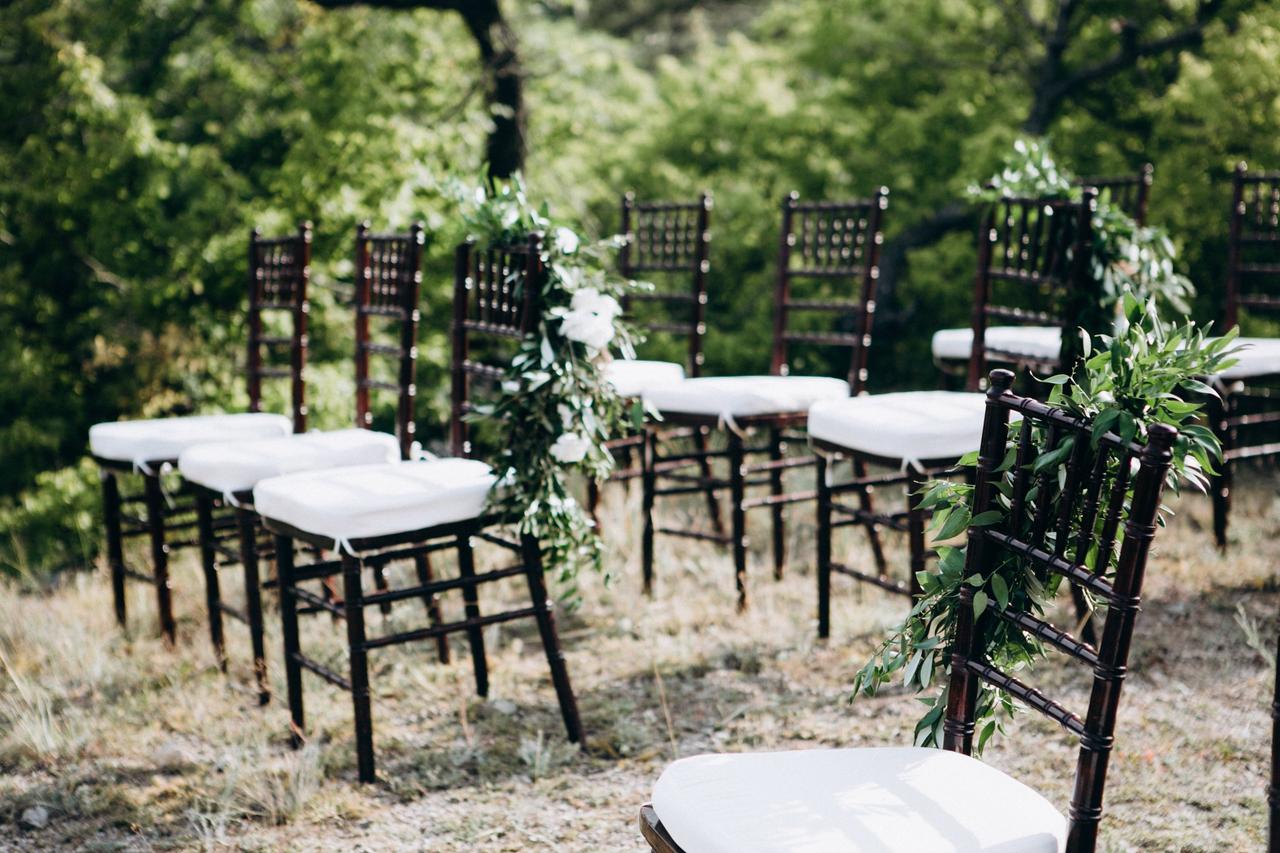
Will I get refunds from my vendors?
As you can guess, refunds from vendors are always a case-by-case basis, and you should be able to find the terms in the various contracts you signed. Unfortunately for those weddings taking place in the next few months, any food or hard goods that have already been purchased will likely not be refunded, and couples should expect to have a financial loss. To mitigate your bottom line, Jacobs says to act fast: “With enough lead-time, wedding venues and vendors are simply transferring deposits paid and new balances to the postponed dates,” she explains. “Do not wait this out: couples should work now to have their plan of action to best protect their expenses.”
If a venue asks you to give money to hold a postponement date, Jacobs says to make sure that you ask them if it can be applied to either the original date or postponement date balance, or refunded.
If you’re uncomfortable with these chats, Sheils says to ask a wedding planner for assistance. Sometimes the fine print is difficult to digest, unless you’re a professional in the industry.
What should I do if my wedding dress is delayed?
According to wedding planner Ann Taylor of A Chic Affair in Orlando, Florida, many bridal fashion companies are seeing delays in their dresses coming out of China. This can be anywhere from 60 to 90 additional days to have your gown in-hand. If you act quickly, you may be able to find another alternative. “You might be able to cancel your dress order or find something off the rack,” Taylor shares.
How should I communicate with guests?
In an age where information is being sent to us in every direction, it can be tricky to understand what to follow and what to heed. Guests of any upcoming wedding will have concerns over your big day, making communication essential, according to Sheils. She suggests placing a notice on your wedding website about the current status of your event answering these questions:
- Is it still on?
- Are you cancelling or rescheduling?
- What are you considering at this time?
- When will you let guests know?
Jacobs also says while it can be overwhelming to respond to all of your friends and family, it is necessary to prevent panic. If you decide to postpone your big day, Jacobs recommends a script like this:
Dear Family and Friends,
It is with a heavy heart that we are writing today to inform you that due to the global COVID-19 pandemic, we have decided to postpone our wedding to a date in the near future. We wanted to let you know as soon as possible so that you have the time to cancel your travel arrangements. Please stay tuned for our new wedding date. Your health is of utmost importance to us, and we have no doubt that when we can come together and celebrate, we're going to have the party of the century!
Love, Us

